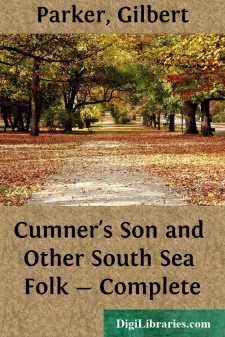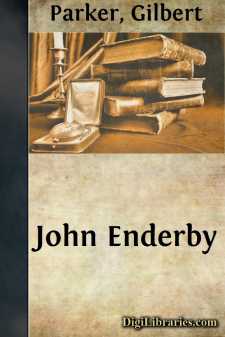Categories
- Antiques & Collectibles 13
- Architecture 36
- Art 48
- Bibles 22
- Biography & Autobiography 813
- Body, Mind & Spirit 142
- Business & Economics 28
- Children's Books 17
- Children's Fiction 14
- Computers 4
- Cooking 94
- Crafts & Hobbies 4
- Drama 346
- Education 46
- Family & Relationships 57
- Fiction 11829
- Games 19
- Gardening 17
- Health & Fitness 34
- History 1377
- House & Home 1
- Humor 147
- Juvenile Fiction 1873
- Juvenile Nonfiction 202
- Language Arts & Disciplines 88
- Law 16
- Literary Collections 686
- Literary Criticism 179
- Mathematics 13
- Medical 41
- Music 40
- Nature 179
- Non-Classifiable 1768
- Performing Arts 7
- Periodicals 1453
- Philosophy 64
- Photography 2
- Poetry 896
- Political Science 203
- Psychology 42
- Reference 154
- Religion 513
- Science 126
- Self-Help 84
- Social Science 81
- Sports & Recreation 34
- Study Aids 3
- Technology & Engineering 59
- Transportation 23
- Travel 463
- True Crime 29
Sort by:
by:
Gilbert Parker
WHILE THE LAMP HOLDS OUT TO BURN There is a town on the Nile which Fielding Bey called Hasha, meaning "Heaven Forbid!" He loathed inspecting it. Going up the Nile, he would put off visiting it till he came down; coming down, he thanked his fates if accident carried him beyond it. Convenient accidents sometimes did occur: a murder at one of the villages below it, asking his immediate presence; a...
more...
by:
Gilbert Parker
SUCH THINGS MAY NOT BE A few hours later Fleda slowly made her way homeward through the woods on the Manitou side of the Sagalac. Leaving Ingolby's house, she had seen men from the ranches and farms and mines beyond Lebanon driving or riding into the town, as though to a fair or fete-day. Word of anticipated troubles had sped through the countryside, and the innate curiosity of a race who greatly...
more...
by:
Gilbert Parker
INTRODUCTION This book is a protest and a deliverance. For seven years I had written continuously of Canada, though some short stories of South Sea life, and the novel Mrs. Falchion, had, during that time, issued from my pen. It looked as though I should be writing of the Far North all my life. Editors had begun to take that view; but from the start it had never been my view. Even when writing Pierre...
more...
by:
Gilbert Parker
INTRODUCTION In one sense this book stands by itself. It is like nothing else I have written, and if one should seek to give it the name of a class, it might be called an historical fantasy. It followed The Trail of the Sword and preceded The Seats of the Mighty, and appeared in the summer of 1895. The critics gave it a reception which was extremely gratifying, because, as it seemed to me, they...
more...
by:
Gilbert Parker
CHAPTER I. THE MAZARINES TAKE POSSESSION From the beginning, Askatoon had had more character and idiosyncrasy than any other town in the West. Perhaps that was because many of its citizens had marked personality, while some were distinctly original—a few so original as to be almost bizarre. The general intelligence was high, and this made the place alert for the new observer. It slept with one eye...
more...
by:
Gilbert Parker
So far as my literary work is concerned 'Pierre and His People' may be likened to a new city built upon the ashes of an old one. Let me explain. While I was in Australia I began a series of short stories and sketches of life in Canada which I called 'Pike Pole Sketches on the Madawaska'. A very few of them were published in Australia, and I brought with me to England in 1889 about...
more...
by:
Gilbert Parker
CHAPTER I. THE GATES OF THE SEA The part I played in Mrs. Falchion's career was not very noble, but I shall set it forth plainly here, else I could not have the boldness to write of her faults or those of others. Of my own history little need be said in preface. Soon after graduating with honours as a physician, I was offered a professional post in a college of medicine in Canada. It was difficult...
more...
by:
Gilbert Parker
I. THE CHOOSING OF THE MESSENGER There was trouble at Mandakan. You could not have guessed it from anything the eye could see. In front of the Residency two soldiers marched up and down sleepily, mechanically, between two ten-pounders marking the limit of their patrol; and an orderly stood at an open door, lazily shifting his eyes from the sentinels to the black guns, which gave out soft, quivering...
more...
by:
Gilbert Parker
THE TRAIL OF THE SWORD This book, like Mrs. Falchion, was published in two volumes in January. That was in 1894. It appeared first serially in the Illustrated London News, for which paper, in effect, it was written, and it also appeared in a series of newspapers in the United States during the year 1893. This was a time when the historical novel was having its vogue. Mr. Stanley Weyman, Sir Arthur...
more...
by:
Gilbert Parker
I Of all the good men that Lincolnshire gave to England to make her proud, strong and handsome, none was stronger, prouder and more handsome than John Enderby, whom King Charles made a knight against his will. "Your gracious Majesty," said John Enderby, when the King was come to Boston town on the business of draining the Holland fen and other matters more important and more secret,...
more...


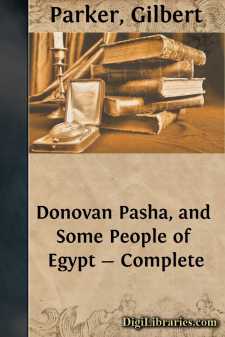


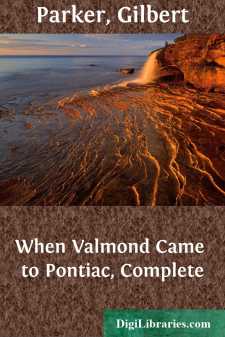
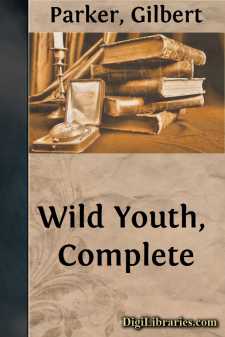
![Pierre and His People, [Tales of the Far North], Complete](https://digilibraries-com.s3.eu-central-1.amazonaws.com/covers/96fa6d84-1d0f-42e5-8755-205d6dafb360.jpg)

